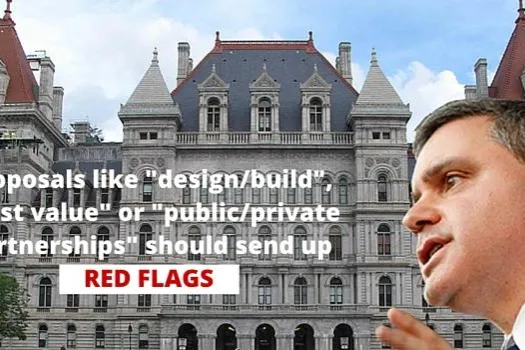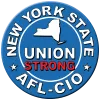Proposed Changes to Labor and Transparency Protections in Public Works Should Send Up Red Flags

Oppose Changes to Labor & Transparency Protections in Public Works
Often billed as ways to lower the cost of projects or speed up the timeline for completing projects, proposals like "design/build", "best value" or "public/private partnerships" should send up red flags as they often result in higher costs, lower quality and less pubic oversight.
These proposals change bidding procedures that protect public safety and taxpayer dollars. They also shift the physical inspection and oversight of projects from independent public employees to the very entities that are performing the work. Finally, they allow contractors to avoid the public scrutiny of their work and avoid ensuring that appropriate prevailing rate, apprenticeship, MWBE and other contracting requirements are adhered to.
Parts B and C of the Economic Development bill, would allow the MTA to enter into public/private partnerships, alter bidding procedures to encourage the down bidding on projects, and utilize design/build contracting. At the same time it would relax insurance requirements to ensure appropriate materials are used and quality work is performed, as well as payroll is met and the projects are completed. This race to the bottom process will not only give a leg up to irresponsible contractors with spotty labor records but it puts the public in danger, as it removes the built-in quality controls of the contacting process.
Another proposal, Part I of the Public Protection bill would create a new entity to oversee virtually all state projects in excess of $50 million. The new entity would have unprecedented power with virtually no legislative input or oversight of public works projects. The entity would be allowed to make changes to projects and alter virtually any aspect of a state project.
We urge defeat of these proposals as they would too loosely allow the bypassing of public oversight and labor laws while at the same time allow private entities to charge tolls, fares and fees with no oversight on how that public money would be used.
Mario Cilento, President
